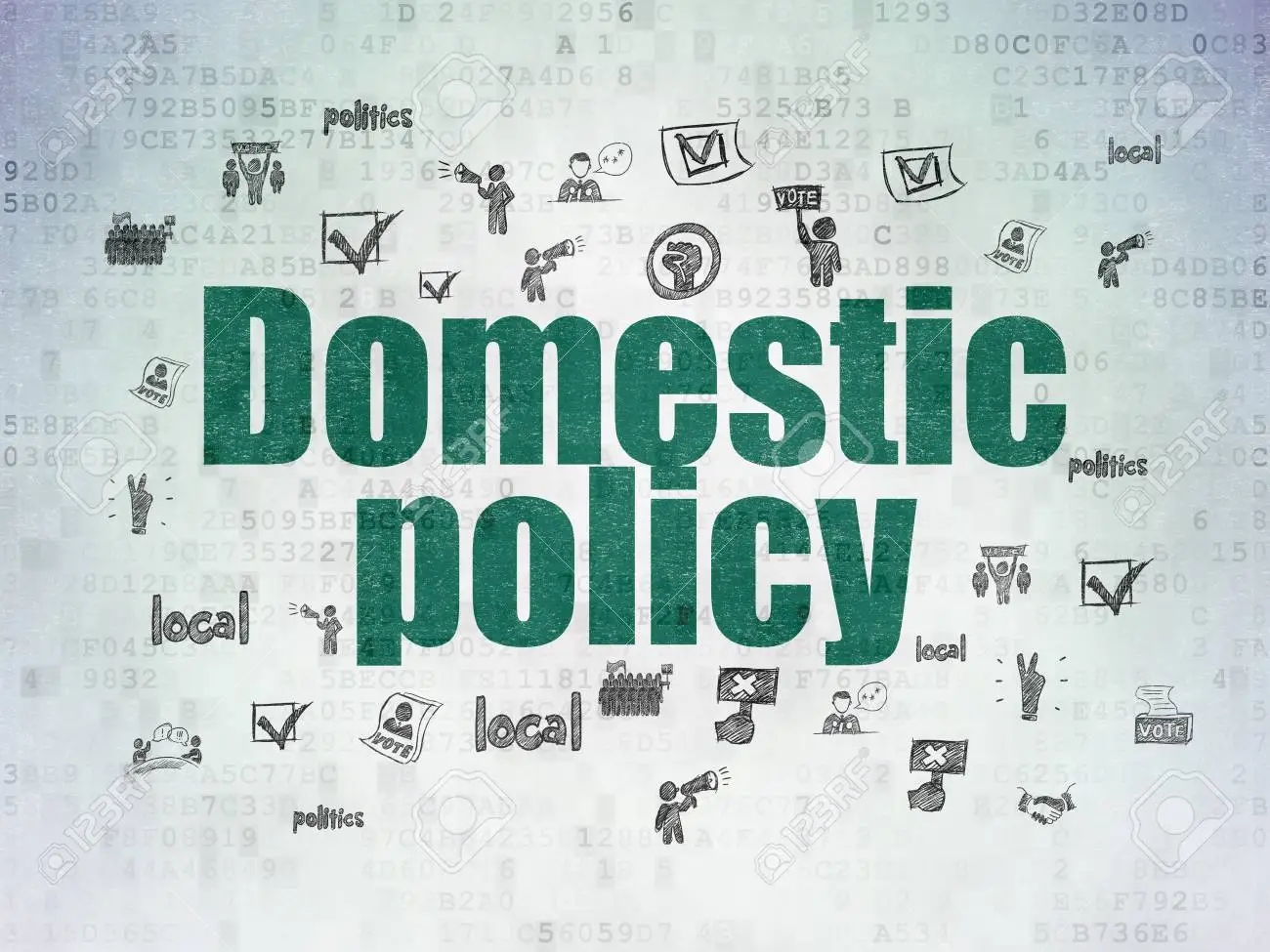
Foreign policy issues have traditionally been seen as being more complicated
Foreign policy issues have traditionally been seen as being more complicated than some domestic issues due to the international environment being so unpredictable. Nevertheless, the views that Americans have on foreign affairs can often quickly shift which may lead elected officials to change policy approaches to better appeal to the people they serve. How much should elected officials follow public opinion on foreign policy issues? Explain whether you think Americans have enough foreign affairs knowledge to form valid opinions on the issues?
Place your order now for a similar assignment and get fast, cheap and best quality work written by our expert level assignment writers. Use Coupon Code: NEW30 to Get 30% OFF Your First Order
Use Coupon Code: NEW30 to Get 30% OFF Your First Order
Other Answered Questions:
SOLVED! Describe the difference between a nursing practice
SOLVED! Discuss how elimination complexities can affect
SOLVED! In this assignment you will propose a quality
what is a domestic policy, examples of domestic policy, domestic politics definition, domestic policy and foreign policy, domestic affairs definition, what is the difference between foreign and domestic policy
domestic policy vs foreign policy, domestic and foreign policy examples, Why are foreign policy issues more complicated than domestic policy issues?, What is the difference between domestic issues and foreign issues?
What is foreign policy and how does it differ from domestic policy quizlet?, What are the major influence on foreign policy?, domestic factors that influence foreign policy
domestic and foreign policy examples
Domestic Policies Definition: Shaping the Future of a Nation
Introduction
Domestic policies play a crucial role in shaping the future of a nation. They encompass a range of regulations, laws, and actions implemented by a government within its own borders to address various issues and meet the needs of its citizens. From economic strategies to social welfare programs, domestic policies have a direct impact on the lives of individuals and communities.
Understanding Domestic Policies
Domestic policies refer to the set of guidelines and actions taken by a government to manage and regulate internal affairs. These policies cover a wide range of areas, including economics, social welfare, education, health, and the environment. The primary objective of domestic policies is to improve the overall well-being of the nation’s citizens and promote sustainable development.
The Importance of Domestic Policies
Effective domestic policies are essential for the stability, progress, and prosperity of a nation. They provide a framework for addressing societal challenges, promoting economic growth, reducing inequality, and ensuring social justice. Domestic policies also contribute to the establishment of a fair and just society, where all individuals have equal opportunities to succeed and thrive.
Key Components of Domestic Policies
Domestic policies consist of several key components that guide their formulation and implementation. These components include:
- Goals and Objectives: Domestic policies are driven by specific goals and objectives that reflect the desired outcomes or improvements sought by the government.
- Legislation and Regulations: Policies are often supported by legislation and regulations that provide the legal framework for their implementation and enforcement.
- Resource Allocation: Effective domestic policies require the allocation of financial and human resources to support their implementation.
- Monitoring and Evaluation: Policies need to be regularly monitored and evaluated to assess their effectiveness and make necessary adjustments.
Types of Domestic Policies
Domestic policies can be categorized into various types based on their focus and objectives. Some common types of domestic policies include:
– Economic Policies
Economic policies aim to manage and regulate the economy of a country. They cover areas such as taxation, trade, investment, employment, and fiscal policies.
– Social Policies
Social policies address issues related to social welfare, equality, and justice. They include policies on healthcare, education, housing, poverty alleviation, and social security.
– Environmental Policies
Environmental policies focus on protecting the environment, conserving natural resources, and addressing climate change. They encompass policies on pollution control, sustainable development, and renewable energy.
– Education Policies
Education policies deal with matters concerning the education system, curriculum development, access to quality education, and lifelong learning opportunities.
– Health Policies
Health policies aim to promote public health, ensure access to healthcare services, and address health-related challenges within a country.
The Process of Formulating Domestic Policies
The formulation of domestic policies involves a structured process that includes the following steps:
– Identifying Issues and Objectives
The first step is to identify the key issues and challenges that need to be addressed through the policy. Clear objectives are set to guide the policy development process.
– Research and Analysis
Extensive research and analysis are conducted to gather relevant data and information. This includes studying best practices, assessing potential impacts, and considering various policy options.
– Stakeholder Engagement
Stakeholder engagement is crucial to ensure that diverse perspectives and interests are taken into account during the policy development process. Consultations, public hearings, and feedback mechanisms are employed to involve stakeholders.
– Policy Development
Based on the research and stakeholder input, policies are formulated, including specific strategies, targets, and measures to achieve the desired outcomes.
– Implementation and Evaluation
After the policy is developed, it is implemented, and progress is monitored. Regular evaluations are conducted to assess the effectiveness of the policy and identify areas for improvement.
Challenges in Implementing Domestic Policies
Implementing domestic policies can pose several challenges. These may include:
- Political Opposition: Policies often face resistance from political opponents, which can hinder their implementation.
- Limited Resources: Inadequate financial and human resources can pose challenges in effectively implementing policies.
- Complexity: Some policies require intricate coordination and collaboration among different government agencies and stakeholders, making their implementation complex.
Domestic Policies and Governance
Domestic policies are closely linked to governance and the overall functioning of a country. Effective governance ensures transparent, accountable, and participatory policy formulation and implementation processes.
Examples of Successful Domestic Policies
Several countries have implemented successful domestic policies that have made a positive impact on their societies. Some notable examples include:
- Universal Healthcare: Countries like Canada and the United Kingdom have implemented universal healthcare systems, ensuring access to healthcare services for all citizens.
- Education Reforms: Finland’s education system is renowned for its comprehensive reforms, leading to excellent educational outcomes.
- Renewable Energy Promotion: Germany’s renewable energy policies have significantly increased the share of clean energy sources in its energy mix.
The Impact of Domestic Policies on Society
Domestic policies have far-reaching impacts on society. They can influence economic growth, social mobility, access to basic services, environmental sustainability, and overall quality of life for citizens.
Critiques and Debates Surrounding Domestic Policies
Despite their importance, domestic policies are subject to critiques and debates. Some argue that certain policies may have unintended consequences, disproportionately impact certain groups, or be ineffective in achieving their stated objectives. These debates highlight the need for continuous evaluation and improvement of policies.
Conclusion
In conclusion, domestic policies are essential tools for governments to address societal challenges, promote development, and improve the well-being of their citizens. From economic strategies to social welfare programs, these policies shape the future of a nation. By formulating and implementing effective and inclusive policies, governments can build a more equitable and prosperous society for all.
FAQs
1. What is the role of domestic policies in economic development? Domestic policies play a crucial role in facilitating economic development by providing a conducive environment for businesses, attracting investments, and ensuring fair competition.
2. How are domestic policies formulated in democratic countries? In democratic countries, domestic policies are formulated through a participatory process that involves consultations, public input, and legislative discussions.
3. Can domestic policies address climate change challenges? Yes, domestic policies can address climate change challenges through the implementation of environmental policies promoting renewable energy, sustainable practices, and emission reduction measures.
4. Do domestic policies vary across different countries? Yes, domestic policies vary across different countries based on their unique contexts, priorities, and governance systems.
5. How can individuals engage with domestic policies? Individuals can engage with domestic policies by staying informed, participating in public consultations, voicing concerns to elected representatives, and joining advocacy groups working on relevant issues.
Example of Domestic Policy: Universal Pre-Kindergarten Education
Universal pre-kindergarten education is an example of a domestic policy that aims to improve early childhood education and ensure equal access to quality education for all children. This policy seeks to provide educational opportunities to children before they enter formal schooling, typically between the ages of three and five.
Under this policy, the government works to establish and fund pre-kindergarten programs in both public and private schools. These programs focus on early learning and development, providing a foundation for children’s cognitive, social, and emotional growth.
The objectives of universal pre-kindergarten education include:
- Equitable Access: The policy aims to ensure that all children, regardless of their socio-economic background, have access to high-quality pre-kindergarten education. By providing free or affordable early education, it reduces disparities in educational opportunities and sets children on a path to success.
- School Readiness: Universal pre-kindergarten education prepares children for the transition to formal schooling. It focuses on building essential skills such as language development, early literacy, numeracy, social interaction, and problem-solving abilities. By starting education early, children are better equipped to succeed academically and socially.
- Child Development: The policy recognizes the critical period of early childhood when brain development is at its peak. It promotes holistic child development by nurturing cognitive, physical, social, and emotional skills. Early education programs often incorporate play-based learning, interactive activities, and individualized attention to support children’s growth.
- Parental Engagement: Universal pre-kindergarten education encourages parental involvement and engagement in their child’s early education journey. It recognizes parents as essential partners in their child’s learning and provides opportunities for them to participate in school activities, workshops, and parent-teacher interactions.
The implementation of universal pre-kindergarten education involves collaboration between the government, educational institutions, and communities. It requires the development of age-appropriate curricula, the recruitment and training of qualified teachers, and the establishment of suitable learning environments.
Research has shown that access to quality pre-kindergarten education has numerous benefits. It leads to improved academic outcomes, reduced achievement gaps, higher high school graduation rates, and enhanced long-term socio-economic prospects for individuals and communities.
However, the implementation of universal pre-kindergarten education also faces challenges. These include funding constraints, ensuring the availability of qualified teachers, and addressing infrastructure requirements. Ongoing evaluation and monitoring are necessary to assess the effectiveness of the policy and make necessary adjustments.
In conclusion, universal pre-kindergarten education is an example of a domestic policy aimed at providing equal access to quality early education. By investing in the early development of children, this policy contributes to building a strong foundation for future learning, promoting educational equity, and fostering overall societal well-being.

The difference between foreign and domestic policy lies in their respective focuses and scope:
Foreign Policy: Foreign policy refers to a government’s strategies, actions, and decisions regarding its interactions with other countries and international actors. It encompasses a nation’s approach to diplomacy, trade, defense, alliances, and global issues. Foreign policy aims to safeguard national interests, promote international cooperation, and protect national security.
Key characteristics of foreign policy include:
- International Relations: Foreign policy is concerned with managing relationships, negotiations, and collaborations with other nations. It aims to advance a country’s political, economic, and cultural interests on the global stage.
- Diplomacy and Negotiation: Foreign policy involves engaging in diplomatic efforts, such as negotiations, treaties, and international agreements, to resolve conflicts, foster cooperation, and advocate for national positions.
- National Security: Foreign policy encompasses actions taken to protect a country’s national security, including defense policies, military alliances, intelligence sharing, and counterterrorism efforts.
- Global Trade and Economic Relations: Foreign policy includes decisions and initiatives related to international trade, economic cooperation, and investment. It involves negotiating trade agreements, addressing trade barriers, and promoting economic interests abroad.
Domestic Policy: Domestic policy, on the other hand, focuses on the government’s strategies, actions, and decisions concerning internal affairs within its own country. It addresses issues related to governance, social welfare, economy, education, healthcare, infrastructure, and other aspects of domestic life. Domestic policy aims to improve the well-being of citizens, address social challenges, and foster sustainable development.
Key characteristics of domestic policy include:
- Internal Governance: Domestic policy involves the formulation and implementation of laws, regulations, and programs to govern and manage internal affairs. It encompasses areas such as public administration, law enforcement, and justice systems.
- Social Welfare: Domestic policy addresses social issues, such as poverty alleviation, healthcare, education, housing, social security, and equal opportunity. It focuses on ensuring the well-being and quality of life for citizens within the country.
- Economic Development: Domestic policy encompasses measures to stimulate economic growth, create employment opportunities, regulate industries, promote entrepreneurship, and address economic inequalities within the country.
- Infrastructure and Public Services: Domestic policy involves planning, funding, and implementing infrastructure projects, such as transportation networks, utilities, and public services like healthcare facilities, schools, and public housing.


